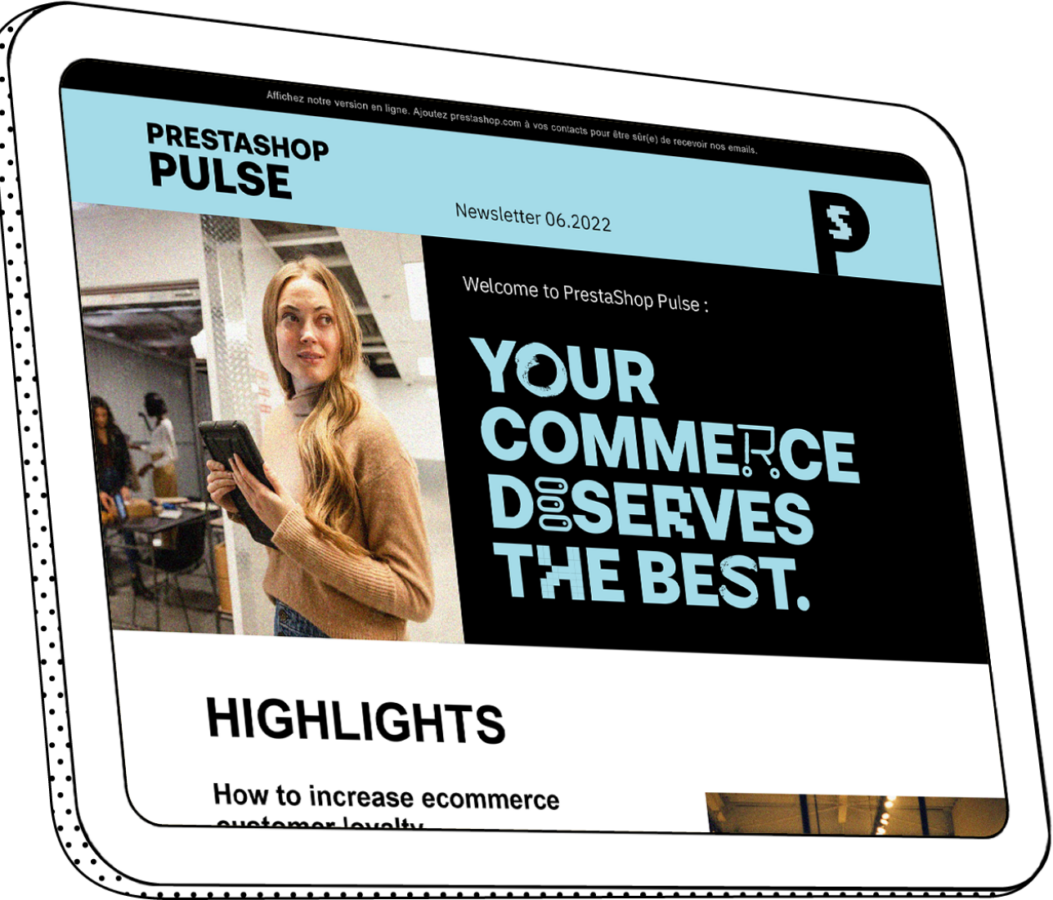Private sales: relevant opportunity or outdated trend?
Originally, private sales are exclusive events organized by luxury brands that offer significant discounts on their products. These were initially physical events in stores, but the digital age has seen a rise in online private sales through various websites such as Veepee in Europe or Gilt in the US. But as the landscape of ecommerce evolves and becomes more saturated, one can't help but wonder: do private sales still hold the same cachet and significance they once did?
The origin of private sales
At first, private sales were exclusive events organized by luxury brands to offer products at discounted prices to a select clientele. This tradition originated as a tactic to clear out last season’s inventory and was initially available to only a privileged few who had close ties to the brands. In those times you’ll have to be sponsored by one loyal member of the brand or pay a subscription to be part of this restricted group of invited people
Since the 2000s, private sales websites have started to emerge in Europe such as Veepee or Showroomprive among others. On the other side of the Atlantic, websites such as Gilt or Ideel followed this trend.
These ecommerce websites captured the essence of private sales and presented them in a new, accessible digital format. No longer did one need a physical invitation; a membership or an exclusive online access code could transport customers to a world of luxury deals.
Now customers can access exclusive deals comfortably sitting at home in just a few clicks. Simply sign up, maybe get an exclusive online code, and you’re in. It's still about those exclusive deals and luxury products (and also a lot more), but with the ease of a click from the comfort of your home.
The evolving challenges of private sales
As one can imagine, the success of private sales did not go unnoticed and soon other e- commerce websites wanted their share of the pie. One significant challenge for private sales actors quickly became the surge in competition. With an influx of online retailers offering year-round discounts and flash sales, the unique selling proposition of private sales has been facing dilution for years now. The closure of Myhabit.com by Amazon in 2016 and Gilt being sold for a quarter of its peak value the same year are just a few examples that illustrate this evolving landscape.
Additionally, the rising consumer expectation for transparency and value has placed a demand on these platforms to offer genuinely attractive deals without compromising on quality. Meeting these heightened expectations while maintaining profitability is proving to be a challenge for private sales entities. Notably, some of these platforms have faced accusations of fraudulent activities or misleading advertising in the past. For instance, this past July, Showroomprive was penalized with a 600,000€ fine for deceptive promotional practices.
Moreover, logistical challenges, such as managing inventory and ensuring timely and accurate deliveries, are continually testing the operational capabilities of private sale platforms. Failing to meet consumer expectations in these operational aspects can significantly tarnish brand reputation and customer trust.
What draws customers to private sales?
One of the primary draws of private sales is the allure of exclusivity. Customers are enticed by the chance to access luxury brands or pricey products at discounted prices, making otherwise unaffordable items suddenly attainable.
As private sales are almost always synonymous with flash sales, those time-limited offers act as potent psychological lures. The fast-ticking countdowns and limited stock play into the pervasive FOMO (Fear of Missing Out). This is particularly resonant with millennials; in fact, 68% have confessed to succumbing to impulse buys spurred by this anxiety.
The idea of exclusivity in private sales has historically been a strong pull. It gives consumers the sensation of being part of an elite circle. However, the landscape is shifting. With many private sales now open to vast online audiences, that sense of exclusivity is somewhat diluted. Take Veepee, for instance. With their tagline promoting access for '50 million members across 13 countries,' it's hard to argue that it's a particularly exclusive club anymore, isn't it ?
Are private sales still relevant for ecommerce brands?
Despite its challenges and the end of the golden area of private sales for big brands, private sales can still continue to hold relevance for e-commerce brands. They will always be a potent tool to clear out inventory, reach new audiences, and strengthen relationships with existing customers.
By offering exclusive deals and discounts, e-commerce websites can attract a flurry of traffic to their platforms, increasing visibility and potentially converting one-time buyers into loyal customers. The relevance of private sales is also reflected in the valuable consumer insights and data they generate. This data can help you tailor your product offerings and marketing strategies to optimize your approach to meet consumer needs and preferences.
However, the evolving consumer preferences and the continuous demand for value and transparency have necessitated a reevaluation of the traditional private sales model. You would definitely need to ensure that the value proposition of private sales is genuine and that the exclusivity and discounts offered do not compromise the quality and integrity of the products.
And, when sales go up, the fulfillment and shipping need to keep up because fast and accurate delivery is particularly important to customers nowadays ! According to a study by Forbes, half of the people shy away from retailers that don’t offer free shipping and 77% have ditched a purchase because of unsatisfactory shipping options.
Conclusion
Private sales, originally a symbol of luxury exclusivity, are evolving in the digital age with their allure of exclusivity now accessible to millions. Despite challenges like increased competition and heightened consumer expectations, they remain a relevant strategy for e- commerce brands, offering a way to clear inventory and attract new customers. Private sales can still maintain relevance by continually adapting to modern-day demands and offering genuine value for customers. They’re not just a relic of the past but a valid strategy in the evolving e-commerce landscape.






